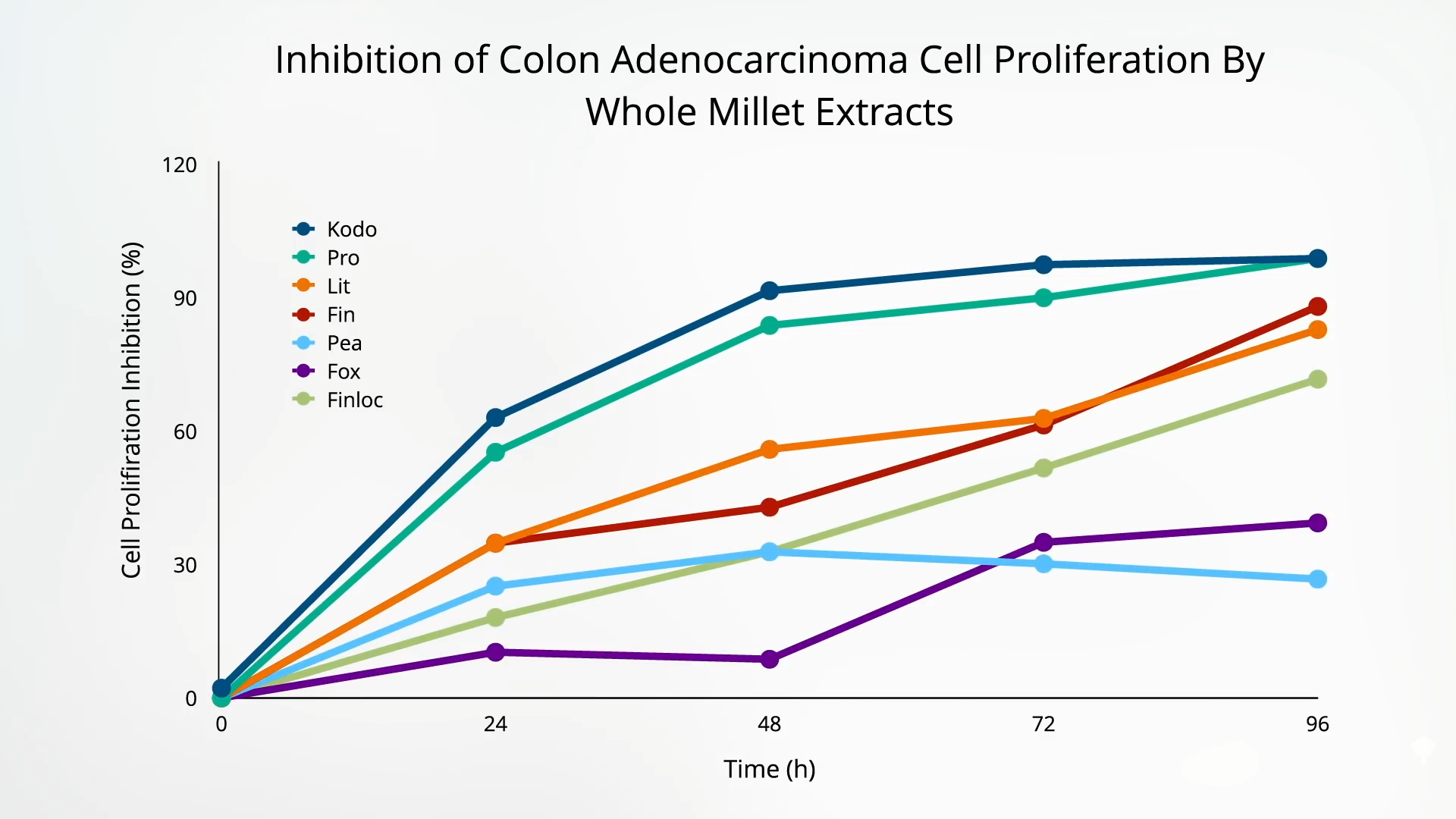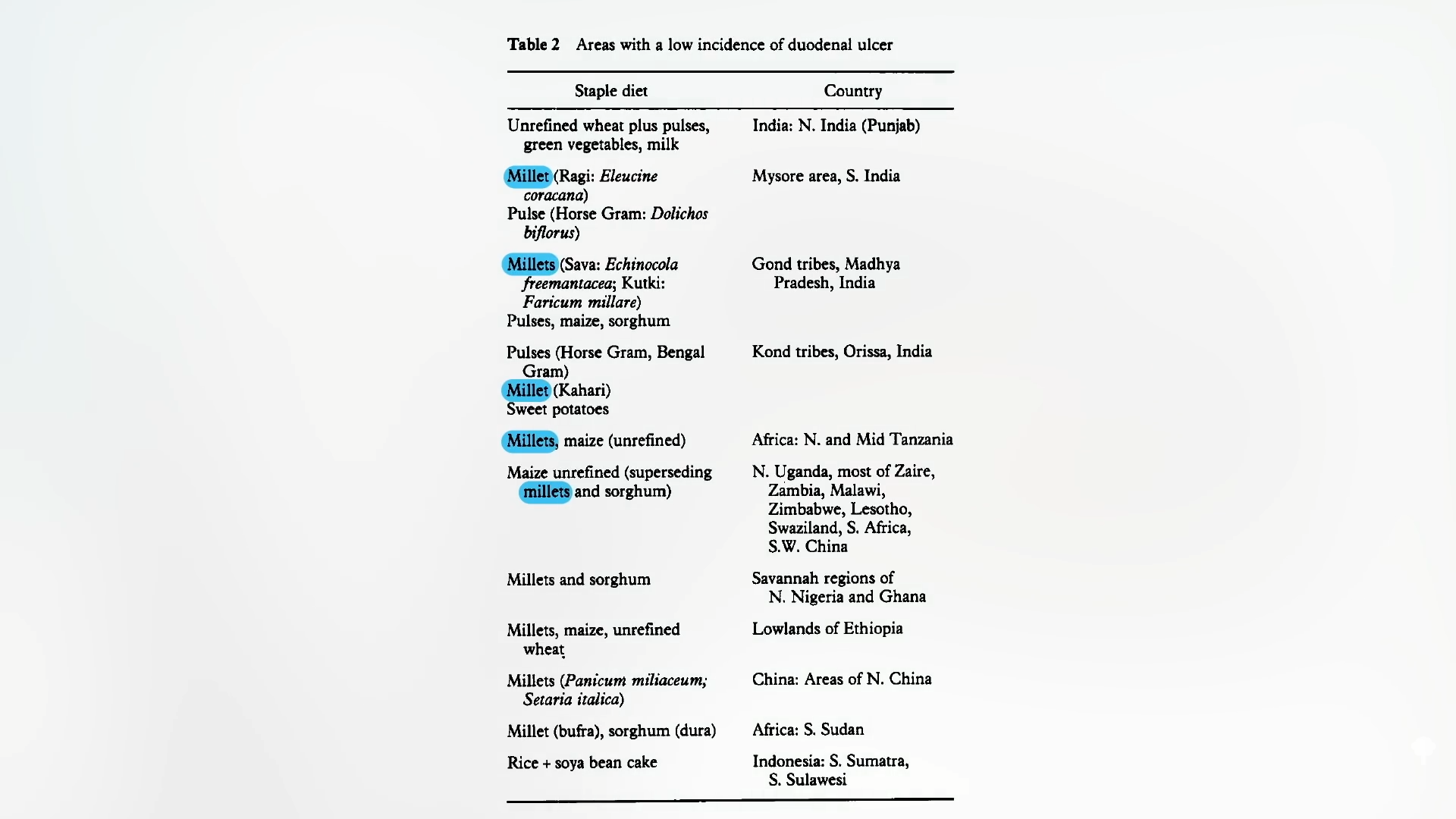Millet isn’t the name of a specific grain, but a generic term that applies to a number of totally different plants. Which is the most healthful
“Millets are highly nutritious but vastly ignored as a main source of food primarily due to lack of awareness.” Have you heard of ancient grains? Millets aren’t messing around. Arguably, they are the first grains cultivated by humankind—dating back not only 5,000 years, but maybe 10,000.
Why millets and not just millet? I had no idea that “millet” wasn’t the name of a specific grain. In fact, millet is a generic term that doesn’t just apply to different species but to a number of totally different plants. There are “major and minor millets,” pearl millet, which is what most people think of as millet, and also proso, foxtail, and finger millets, which are all completely different grains. Although they look similar, they aren’t the same, as you can see below and at 1:05 in my video Studies on Millet Nutrition: Is It a Healthy Grain?.
Fiber is one of the main things we look for in whole grain, and Kodo millet’s fiber content is off the charts. But, compared to other grains, finger and foxtail millets also beat out the bunch. Note, though, that pearl millet (the one most people think of as millet) is really on the low side. But looking at the polyphenol content, even plain millet beats out the other grains, including sorghum, which I previously hyped for how much polyphenol it contains. But, again, Kodo millet seems to win the day, as you can see below and at 1:39 in my video.

When it comes to total antioxidants, though, Kodo and finger millets are comparably high, as shown here and at 1:43.

When it comes to nutrition, finger millet is said to have eight times more calcium than other grains, but, to me, it looks like it has ten times the calcium. It’s just off the charts, as you can see here and at 1:55 in my video.

It also has three times as much calcium as milk. Some of the millets are exceptionally high in iron too. Regular millet is high, but barnyard millet has about five times more iron than steak.
So, it’s nutritious, but what about specific potential health benefits? In the medical literature, you can read statements like: Millets “may prevent cardiovascular disease by reducing plasma triglycerides in hyperlipidemic rats.” But who cares whether food reduces cardiovascular disease in rodents except for those with pet rats or mice?
An epidemiological study in China found lower esophageal cancer mortality rates in areas where residents ate more millet and sorghum, compared to corn and wheat. That may have been due more to avoiding a contaminating carcinogenic fungus than to the benefits of millet itself, though. Studies have shown that millets may be effective against cancer cell proliferation in a petri dish, with Kodo and proso millets rapidly inhibiting cancer cell growth, compared to pearl or foxtail millet, as shown below and at 3:02 in my video, knocking down the growth of cancer cells, but leaving normal cells alone. Also, millets were found to reduce the growth of colon cancer cells, human breast cancer cells, and human liver cancer cells, and also potentially help to prevent metastases by inhibiting cancer cell migration. My patients are neither pets nor petri dishes, though, and to date, there have been no clinical cancer trials with millet.

Are there any unique health-promoting attributes? Some know finger millet for its health benefits, such as lowering blood sugar and cholesterol and having anti-ulcer characteristics, but the anti-ulcer study researchers cite just notes that some of the areas with a low incidence of ulcers also happened to be regions where residents eat millet, as shown here and at 3:49 in my video, and that’s far from establishing cause-and-effect.

And the cholesterol-lowering study cited? It explores what happens when you take tail tendons from rats and soak them in sugar and millet! The blood-sugar-lowering benefits are legitimate, though. “Apart from the fact that millets do not contain gluten,” which is good for the 1 or 2 percent of people who have celiac disease or non-celiac gluten sensitivity, “millets can also be exploited in the management of type II diabetes due to their hypoglycemic [blood-sugar-lowering] property, as reported by several studies on millets and millet-based foods”—done with actual people, which we’ll cover next.
Isn’t it mind-blowing that millet isn’t actually a grain but a generic term? I learn something new every day—and make videos about it for you.
I have a few millet recipes in The How Not to Diet Cookbook, including Millet Risotto with Mushrooms, White Beans, and Spinach. Find it at your local library or wherever you get your books. (As always, all proceeds from my books are donated to charity.) You can also substitute millet for the barley and/or rye in my Basic BROL Bowl.
This is part of an extended series, which includes another three videos listed in the related posts below.




